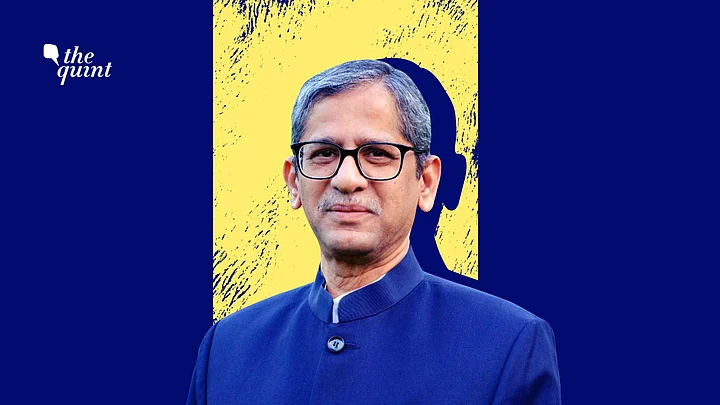President Ram Nath Kovind on Tuesday, 6 April, gave his assent for the appointment of Justice Nuthalapati Venkata Ramana as the next Chief Justice of India (CJI). Justice Ramana will be the 48th judge to hold this position and will continue in office till 26 August 2022.
Having served as the Chief Justice of the Delhi High Court and the acting Chief Justice of the Andhra Pradesh High Court, he was elevated as the judge of the Supreme Court of India (SC) on 17 February 2014.
Justice Ramana will be the second judge from Andhra who will hold the office of the CJI, after Justice K Subba Rao who was the ninth CJI from 1966 to 1967.
The Early Years
Justice NV Ramana was born into an agrarian family on 27 August 1957, in Andhra Pradesh’s Ponnavaram village. He completed his graduation in science and law and worked as a journalist writing for a local newspaper for two years before enrolling as an advocate at the Bar on 10 February 1983.
Justice Ramana became the first-generation lawyer of his family, after enrolling with the Bar.
Since then, Justice Ramana practised before the Andhra Pradesh High Court, Central Administrative Tribunal, Andhra Pradesh Administrative Tribunal and the SC. He was Panel Counsel for various government organisations, including the Indian Railways, as well as functioned as Additional Advocate General for the State of Andhra Pradesh.
Considered an expert on both civil and criminal laws, he was appointed as a permanent judge of the Andhra Pradesh High Court on 27 June 2000. Subsequently, on 2 September 2013, he was made the Chief Justice of the Delhi High Court.
During his years as a member of the Bar, he appeared in various cases of constitutional law, labour law, service law, inter-state river disputes as well as election disputes.
Landmark Cases of Justice Ramana's Bench
In Anuradha Bhasin v. Union of India, famously known as the Kashmir internet shutdown case, a three-judge Bench, led by Justice Ramana, directed the Jammu and Kashmir administration to review all orders imposing curbs on telecom and internet services in Kashmir in a week and publish them in the public domain.
Subsequently, in another case pertaining to internet shutdown in Kashmir filed by Media Professionals Association, the same Bench headed by Justice Ramana constituted a three-member committee to look into the demand for allowing 4G mobile internet in the Union territory of Jammu and Kashmir.
Espousing the cause of economic federalism, Justice Ramana was part of a nine-judge Bench of the SC which had held, with a 7:2 majority, that state governments are allowed to formulate their own fiscal legislations.
Justice Ramana’s commitment to preserving the federal structure also reflected in the judgment in the Nabam Rebia case, where a five-judge Bench, including Justice Ramana, quashed the Governor’s order, advancing the sixth session of the Arunachal Pradesh Legislative Assembly by a month without consulting the Council of Ministers or the Speaker, for being violative of Article 163 read with Article 174 of the Constitution of India.
On the issue of gender justice, it was a Division Bench which had noted that the value of a woman’s work at home was no less than that of her office-going husband. The Bench was headed by Justice Ramana.
The Controversy
In October 2020, Andhra Pradesh Chief Minister YS Jagan Mohan Reddy wrote to CJI SA Bobde, alleging that Justice Ramana and his relatives had engaged in corruption in connection with the acquisition of land in Amravati and has attempted to “destabilise and topple" a democratically elected government by allegedly influencing hearings and decisions in the Andhra HC.
However, on the day incumbent CJI Bobde recommended Justice Ramana’s name as the next CJI, the apex court issued a short statement on the dismissal of Reddy’s complaint by calling it “meritless”.
